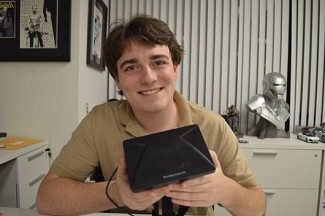Trademark Infringement and False Designation
Defendants: Oculus, Iribe, and Luckey
Jury Award: $50,000,000 Oculus / $150,000,000 Iribe / $50,000,000 Luckey
The plaintiffs alleged that Oculus, Luckey, and Iribe infringed the plaintiffs’ trademarks. To prevail on their claim, the plaintiffs needed to prove that: (1) ZeniMax owned legally protectable trademarks; and (2) Oculus, Luckey and Iribe used one or more of ZeniMax’s trademarks without its consent, in connection with the offer of products in a manner that was likely to cause confusion as to the source, affiliation, or sponsorship of the products. A likelihood of confusion means a probability of confusion (not just a mere possibility of confusion), and that a reasonably prudent purchaser or user is likely to be confused as to the source of the product in question.

The plaintiffs also brought a claim for false designation against Oculus, Luckey and Iribe. The court explained to the jury that “any person who makes commercial use of any word, term, name, or symbol, or combination thereof that is likely to cause confusion as to that person’s affiliation, connection, or association with another person, or that misrepresents in advertising the nature, characteristics, quality, or geographic origin of that person’s goods or services, is liable to any person who is or is likely to be damaged by the false designation of origin.”
Oculus, Luckey and Iribe raised multiple defenses. They alleged that: (1) they had an express or implied license to use the trademarks; (2) ZeniMax acquiesced to the use of its trademarks; (3) they used it to accurately describe their goods and services (“nominative fair use”); and (4) the doctrine of laches prohibited the claim.
The jury found that Oculus and Iribe intentionally and knowingly infringed ZeniMax’s trademarks, but found that Luckey did not. The jury found that the defenses of license, acquiescence, nominal fair use and laches did not serve as a viable defense. The jury found that the actual damages that the plaintiffs suffered as a result of the trademark infringement was $0.
The jury found that Oculus, Luckey and Iribe are all liable for false designation, in which they intentionally and knowingly engaged. The jury again found that none of the foregoing defenses bar the plaintiffs’ claim. The jury found that actual damages that the plaintiffs suffered as a result of the false designation were as follows: $50,000,000 Oculus; $50,000,000 Luckey; and $150,000,000 Iribe.
– – — – –
Within hours of the court announcing the verdict, Oculus released a statement vowing to appeal. Meanwhile, ZeniMax is mulling over seeking injunctive relief to temporarily halt the sale of Oculus Rift headsets.╫
Iribe is reported to have a net worth valued around $2 billion, while Luckey’s net worth is reported around $700 million, so they are armed with enough cash to continue litigating (or perhaps their defense fees are paid by contract with Oculus).
Expect more motions to get filed in the trial court, including ZeniMax seeking millions in attorney fees. Although the verdict has been announced, it’s not likely the end of the case, but actually a second beginning. Given the high stakes of this case, expect a number of post-verdict motions and appeals, resulting in the case dragging on indefinitely. The appellate process can take years. Often, parties will settle during the appellate process for an array of reasons, ranging from business concerns to legal uncertainty to resource drain. This matter is far from over.







